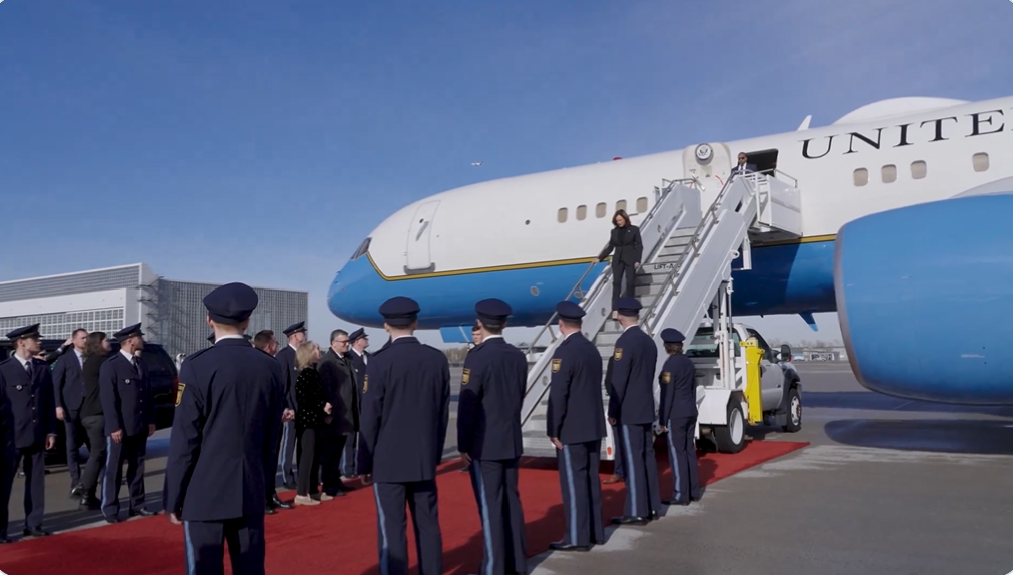In her remarks at the 40th Annual NABE Economic Policy Conference, National Economic Advisor Lael Brainard highlighted the robust recovery of the U.S. economy from the pandemic and the impact of President Biden's legislation. She emphasized the economy's unexpected strength, with significant declines in inflation toward the 2% target, solid growth, and low unemployment. Brainard attributed the rapid inflation decline to resolving supply chain issues and other pandemic-related distortions without the anticipated increase in unemployment.
Brainard outlined key areas of improvement, laying the foundation for future growth: increased business dynamism, strong labor market recovery, and significant business investment. She noted the record number of business applications and jobs added, particularly among small businesses and those owned by women and minorities, fueled by the administration's support. The labor market has seen more people entering the workforce and reallocating jobs and workers, leading to real wage growth and the highest employment levels for prime-age workers, especially women.
Business investment has been robust, driven by significant legislative achievements such as the Bipartisan Infrastructure Law, CHIPS and Science Act, and Inflation Reduction Act. These investments have not only exceeded expectations but have also focused on manufacturing and communities previously left behind. Brainard affirmed the strong, broad-based recovery and the potential for durable, inclusive economic growth, reflecting President Biden's vision of growth from the bottom up and middle out.
The White House National Economic Council (NEC) and the Small Business Administration (SBA) recently hosted a significant event with business leaders to celebrate and discuss the expansion of the Small Business Investment Company (SBIC) program, aligning with the Biden-Harris Administration's commitment to supporting small businesses and innovative startups. This initiative is part of President Biden's broader economic strategy, Bidenomics, aimed at stimulating the economy inclusively.
The convening marked the announcement of the first SBIC licensee under new reforms designed to increase private sector investments in small businesses, particularly high-tech and advanced manufacturing sectors crucial for U.S. national security. This effort reflects a collaborative approach between the SBA and the Department of Defense to bolster small businesses integral to the country's technological and manufacturing priorities.
Key outcomes and announcements from the event include:
The SBA unveiled the first SBIC licensee under the new reforms, Pelion Ventures, which will receive up to $125 million from the SBA to match private capital raised. This funding supports early-stage companies in various industries, including technology and e-commerce.
The SBA also announced Stifel North Atlantic's approval to raise private capital for the Additive Manufacturing (AM Forward) fund as part of the SBA-DOD SBIC Critical Technologies initiative. This fund focuses on advancing additive manufacturing capabilities to enhance the domestic supply chain in defense, aerospace, and energy sectors.
The SBIC program, with over $42 billion in SBA-backed and private capital, has been instrumental in supporting small businesses across industries, creating and sustaining jobs, and driving significant growth in financing to diverse-owned small businesses.
Participants in the event, ranging from federal officials and small business owners to investment professionals and industry leaders, discussed how these reforms could bridge funding gaps, especially in underserved markets, and enhance the ecosystem for small business investment. The reforms are hailed for addressing capital access challenges in capital-intensive sectors and promoting a more inclusive investment approach.
The event underscored the importance of public-private partnerships in driving small business growth and innovation, particularly in areas traditionally underserved by private capital. It reflects a significant step forward in the administration's efforts to ensure small businesses, crucial to the American economy's dynamism and resilience, have the support and resources they need to thrive.
A press briefing held by Press Secretary Karine Jean-Pierre and White House National Security Communications Advisor John Kirby covered several critical topics, starting with the tragic shooting at the Chiefs Super Bowl Parade in Kansas City, where multiple gunmen killed two people and injured more than 20, including children. The administration expressed condolences and emphasized ongoing support and thanks to law enforcement. It highlighted the issue of gun violence in America, noting the high number of mass shootings in 2024 and calling for Congress to enact stricter gun laws.
Additionally, the briefing announced President Biden's upcoming meeting with Polish leaders to discuss NATO, support for Ukraine, and shared democratic values. It also addressed concerns about a Russian anti-satellite capability, confirming it is under development but not yet deployed. It also details U.S. efforts to engage diplomatically with Russia and its allies on this issue.
The situation in Ukraine, particularly the critical state of Avdiivka due to a shortage of artillery ammunition for Ukrainian forces, was discussed, with a call for Congress to pass the necessary funding to support Ukraine.
On domestic policy, the White House highlighted efforts to combat gun violence through executive actions and legislative measures, reiterated the administration's commitment to NATO and support for Ukraine, and addressed security concerns related to Russia's anti-satellite capabilities. The administration emphasized the need for congressional action on various fronts, including gun control and support for Ukraine, and reiterated its commitment to international engagement and democratic values.
President Biden held a conversation by telephone with Prime Minister Benjamin Netanyahu of Israel, focusing on the distressing situation of hostages held by Hamas for 132 days. The President emphasized his commitment to work towards their release as soon as possible. The discussion also covered the critical conditions in Gaza, highlighting the necessity of delivering humanitarian aid to Palestinian civilians in need.
Furthermore, President Biden addressed concerns about Rafah, stating that any military operation there must have a well-founded plan to ensure civilian safety and support. This conversation underscores the ongoing efforts and discussions aimed at resolving the complex issues in the region, ensuring the well-being of civilians, and securing the release of hostages.
Vice President Kamala Harris departing Air Force Two in Germany on her way to the Munich Security Conference, 2-15-24




